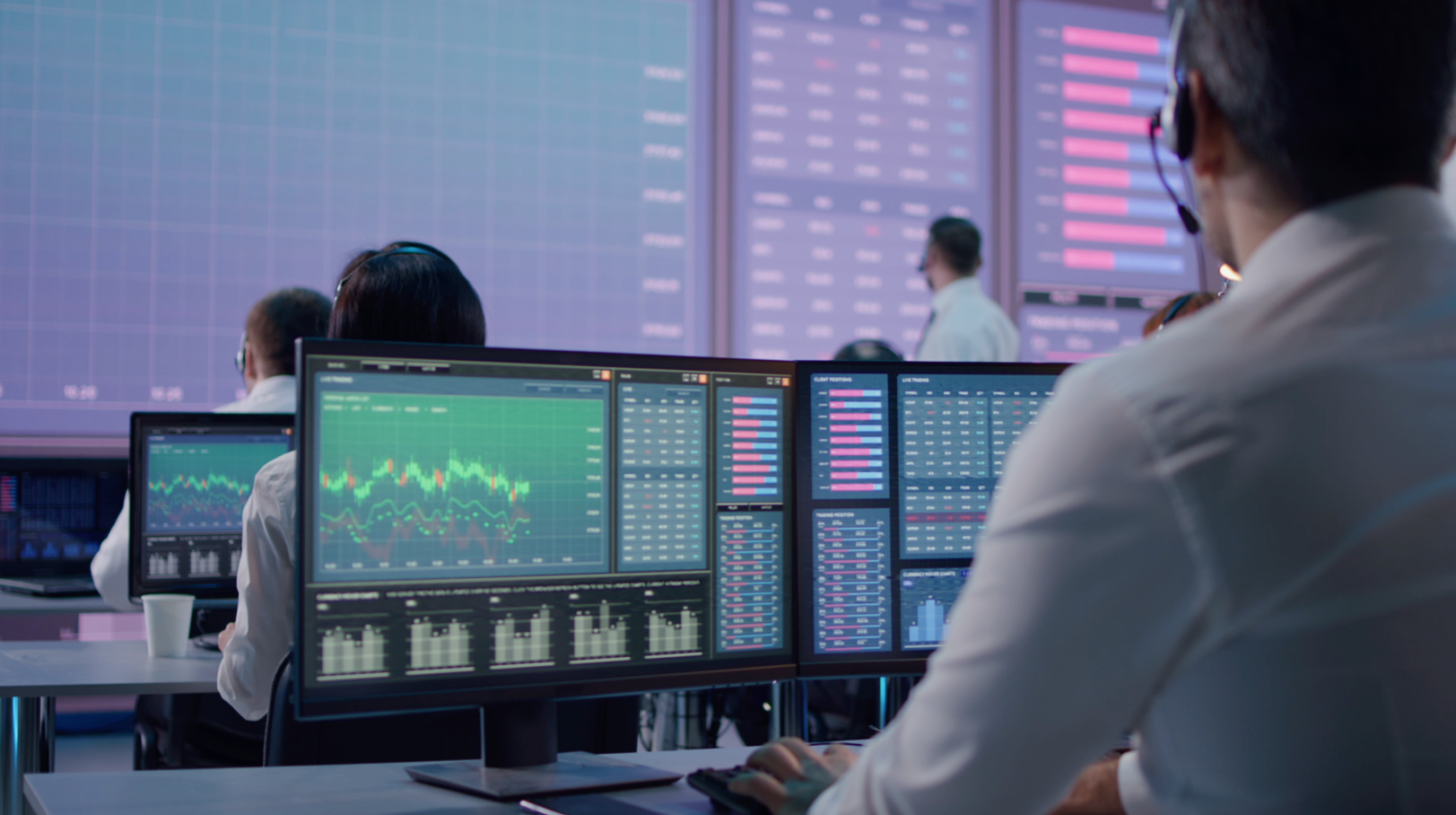Whether on the trading floor or in the CERN control rooms, vast streams of constantly changing data cross each other under the watchful eye of experts. On the one hand, physicists analyse the results of particle collisions – now over one exabyte of data is stored in CERN’s computing facilities – in search of the key data that will tell them more about the nature of the Universe. On the other hand, financial regulators scan markets riddled with hundreds of millions of algorithmically performed buy-and-sell orders with a view to exposing those who do not play by the rules and try to manipulate trade exchanges. With this in mind, it is clear that the world of physics, its tools and expertise, can be of help to the financial world.
Last month, academic financial experts and international market regulators met CERN representatives to launch a unique collaboration. Named the International Expert Group on Market Surveillance (IMS Group), the collaboration brings together 17 regulatory agencies across the world as well as CERN. “By combining academic research, industry expertise and CERN’s expert knowledge, we are uniquely positioned to drive innovation and create new solutions and tools for financial market surveillance,” says Marjolein Verhulst, the chair of the IMS Group. “In the coming months, we hope to welcome additional regulatory agencies and develop a research agenda that addresses common surveillance challenges”.
Over the last fifty years, stock exchanges have transitioned from open outcry to electronic trading, from loud shouting and hand gesturing to ever more automated, frequent and efficient processes. These changes have enabled new market manipulation techniques, such as spoofing, to thrive. Spoofing consists in distorting the price of certain financial instruments by placing “fake” buy or sell orders without the intent to trade, only to cancel them once the market has reacted. By doing so, the manipulator can then trade an opposite order at a more favourable price. This comes at the expense of other investors and lowers trust in financial institutions. To fight spoofing, it is important to closely monitor the market for microscopic signals.
When sifting through its vast stores of data, CERN has developed several tools – such as the open-source data analysis framework ROOT – to filter the data and visualise that which is potentially interesting for further analysis. Financial regulators are embracing such modern algorithms, transitioning away from the previous practice of comparing snapshots of the order book each second or minute, which misses the transactions made in between.
As a renowned expert in scientific data analysis and modelling, CERN is playing an active role in this collaboration with the IMS Group by providing some of the techniques it uses for particle physics, particularly ROOT. “ROOT has been used by physicists to analyse CERN data for over twenty years and is continuously updated”, explains Axel Naumann, a senior applied physicist at CERN. “Available as open source, ROOT provides a versatile solution for partners who are willing to make a positive impact on society and want to crack problems that require extreme data analysis, such as genomic analysis, vaccine production or Earth observation.”
The basis of this collaboration is HighLO, a research project that was launched four years ago by CERN, the Wageningen University (WUR) / Maastricht University (UM) and the Dutch Commodity Risk Management Expertise Centre (CORMEC). Using ROOT and market data, the project team developed a unique visualisation method that enables market regulators to protect commodity and financial markets from malpractices and to analyse spoofing cases in detail, such as a record-breaking spoofing case encountered by JPMorgan in 2020.
CERN’s technologies and expertise are available for scientific and commercial purposes through a variety of technology transfer opportunities. The CERN Knowledge Transfer group can help you to tap into this potential and find solutions based on CERN’s many areas of expertise. Visit the KT website or write to kt@cern.ch
The HighLO project team will present its research at the upcoming Knowledge Transfer (KT) seminar at 11 a.m. on 29 June. The presentation will be entitled “Discovering fraud: can CERN tools accelerate market surveillance?” During the talk, researchers will present this unique cooperation between CERN and the academic financial world and financial regulators. Find out more on the Indico event page.

